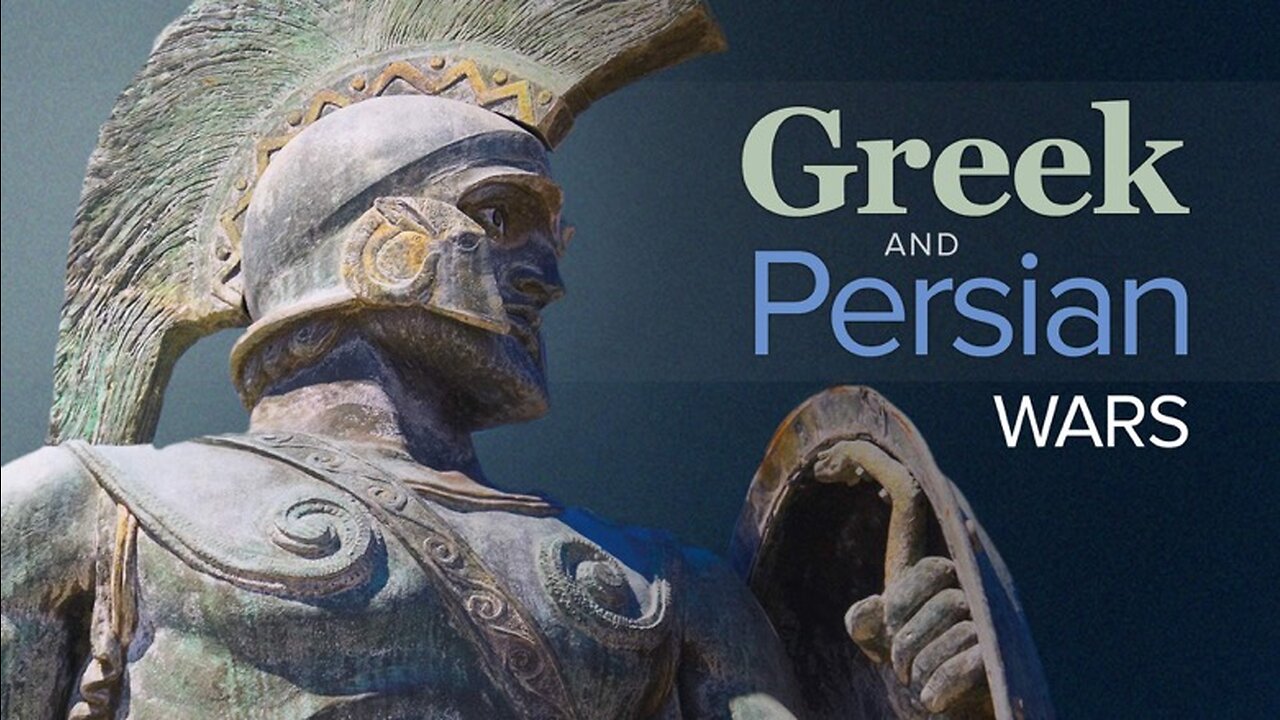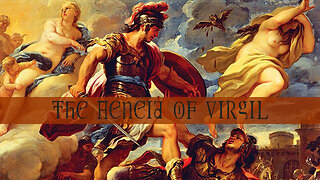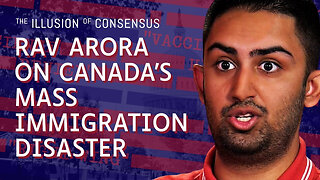Premium Only Content

Greek and Persian Wars | When East Met West (Lecture 24)
Lecture 24: After the submission of Babylon and Susa, Alexander rode into the Persian heartland, then campaigned in the territories of modern Afghanistan, Pakistan, India, and Iran. On returning to Babylon, he conducted two ceremonies that symbolized, after decades of conflict, the union of Greece and Persia: a massive intercultural wedding and a harmonious intercultural feast. Alexander, in the Persian manner, was now a Great King. He continued to depart from his role as conqueror on behalf of Greece—for example, he trained 30,000 Persian youths in the Macedonian way and called them his “Successors”—and his army mutinied. Shortly afterward, Alexander died, either from natural causes or from poisoning, and with him perished the short-lived political union of Persia and Greece. Cultural interactions between East and West, however, would endure for centuries and become a major force in shaping our modern, multicultural world.
Recommended Reading:
Bengtson, The Greeks and the Persians: From the Sixth to the Fourth Centuries.
Farrokh, Shadows in the Desert: Ancient Persia at War.
-
 30:14
30:14
The Great Courses
2 days agoThe Aeneid of Virgil | Introduction (Lecture 1)
102 -
 LIVE
LIVE
BEK TV
23 hours agoTrent Loos in the Morning 4/30/2025
5,821 watching -
 15:35
15:35
The Illusion of Consensus
1 day agoRav Arora Warns Danger of Mass Immigration In Canada
5.21K5 -
 26:33
26:33
CatfishedOnline
1 day agoI Sent $150k And Sold My Home For Online Love!
42.3K15 -
 7:37
7:37
The Shannon Joy Show
12 hours ago💀 Doctor Death: NY’s Suicide Bill
18.1K10 -
 19:05
19:05
This Bahamian Gyal
15 hours agoWhy would SHANNON SHARPE risk EVERYTHING for THIS?
13.1K5 -
 34:53
34:53
Uncommon Sense In Current Times
15 hours ago $2.74 earnedEconomist Breaks Down Trump Tariffs | Dr. Jonathan Newman
23.6K8 -
 13:23
13:23
NinjaGamblers
22 hours ago $0.42 earnedMasaniello Betting Strategy at Roulette: Guaranteed Wins Every Time??
10.9K3 -
 1:00:43
1:00:43
Trumpet Daily
20 hours ago $4.82 earnedCanada Hates Trump More Than the Trudeau Disaster - Trumpet Daily | Apr. 29, 2025
23.9K27 -
 53:01
53:01
State of the Second Podcast
17 hours agoDisarming Americans One Law at a Time (ft. Krate Tactical)
13.6K3